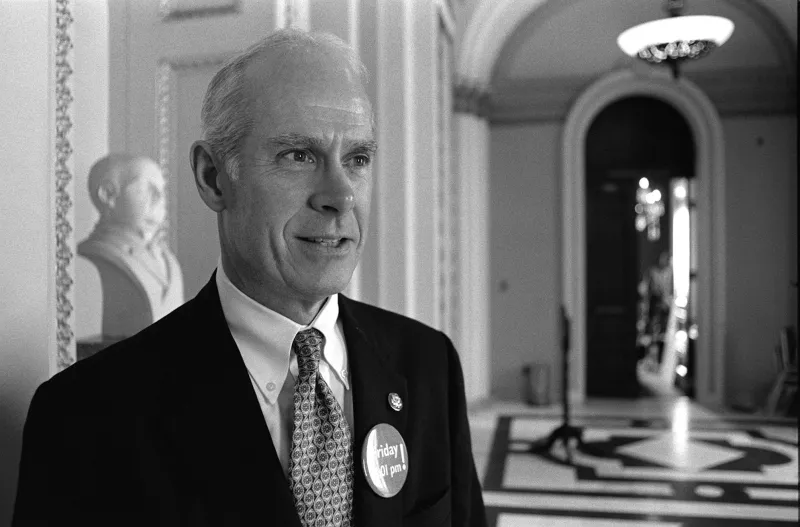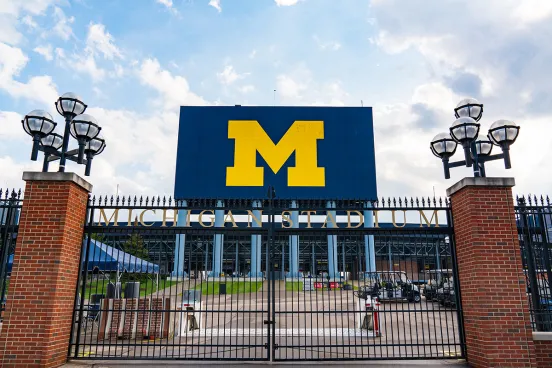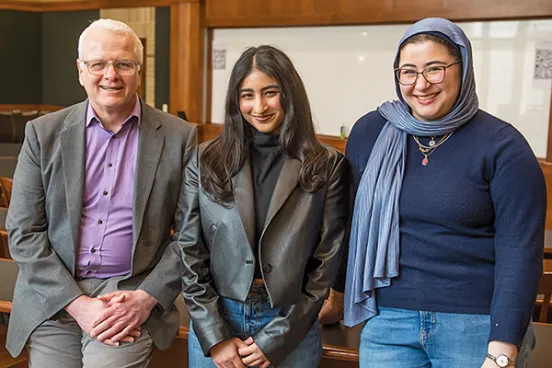
Rep. John E. Porter, ’61, a Republican who served for more than two decades in the US House of Representatives as the representative for Illinois’s 10th congressional district, died on June 3, 2022. He was 87.
A native of Evanston, Illinois, Porter represented the North Shore of Chicago, the northwest suburbs, and eastern Lake County. A moderate voice amid today’s political landscape, Porter opposed cuts in social programs, supported global family planning programs, and backed gun control measures, including spearheading the 1994 Federal Assault Weapons Ban.
Additionally, he supported a number of human rights measures, including the creation of the Congressional Human Rights Caucus, a voluntary group that worked to identify, track, and end human rights violations all over the world. He was a member of the House Appropriations Committee and chair of its Subcommittee on Labor, Health and Human Services, Education, and Related Agencies. The committee’s jurisdiction covered all of the health programs of the National Institutes of Health (NIH), as well as those of other health-related federal agencies.
During his tenure, he helped increase funding for scientific and biomedical research, including mapping the human genome, which “continues to transform medicine on a daily basis and has provided life-saving cures all around the world,” according to Sen. Richard J. Durbin [D-IL], who served with Porter. In 2014, the National Institutes of Health dedicated the John Edward Porter Neuroscience Research Center in Bethesda, Maryland, in his honor. It houses more than 800 brain research scientists and is one of the largest neuroscience research centers in the world.
After leaving Congress in 2001, Porter became a partner and senior adviser at Hogan Lovells LLP in Washington, DC. He was involved with a number of civic and nonprofit organizations, including serving as chair of Research!America, vice chair of the Foundation for the National Institutes of Health, and on the boards of Public Broadcasting Service, the Brookings Institution, and the American Heart Association, among others. He received more than 275 awards for his service, including the Public Welfare Medal from the National Academy of Sciences.
Dismayed by Florida legislation attacking science in schools, Porter wrote a 2017 op-ed in the Washington Post titled, “If we want this nation to succeed, we can’t put facts up for dispute.” In it he argued that America “was built on the pursuit of knowledge, in which teachers and students are free to expand their curiosity, study, and evaluate issues, including controversial ones.”
Porter leaves behind a legacy of bipartisanship, an appetite for scientific innovation, and a continuous drive for international collaboration. He is survived by his spouse, Amy; seven children and stepchildren; and 14 grandchildren.







